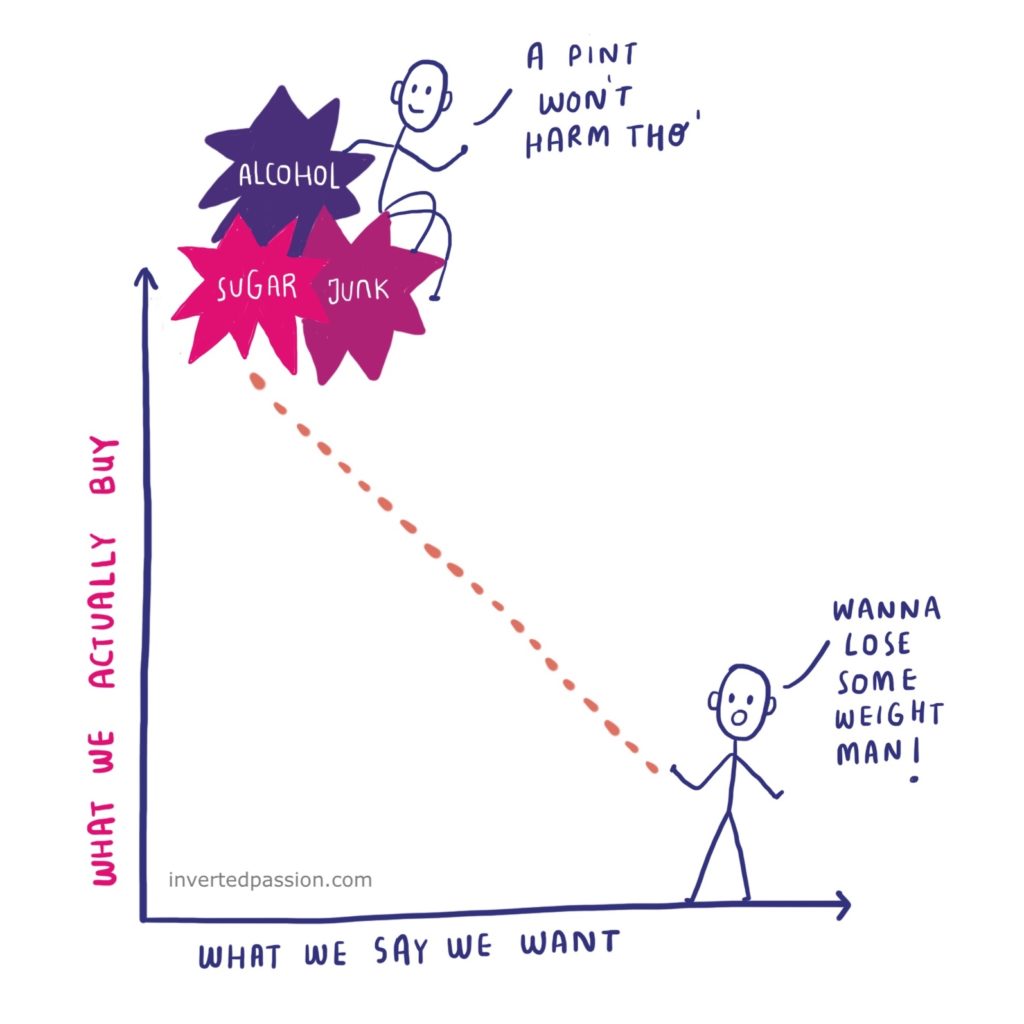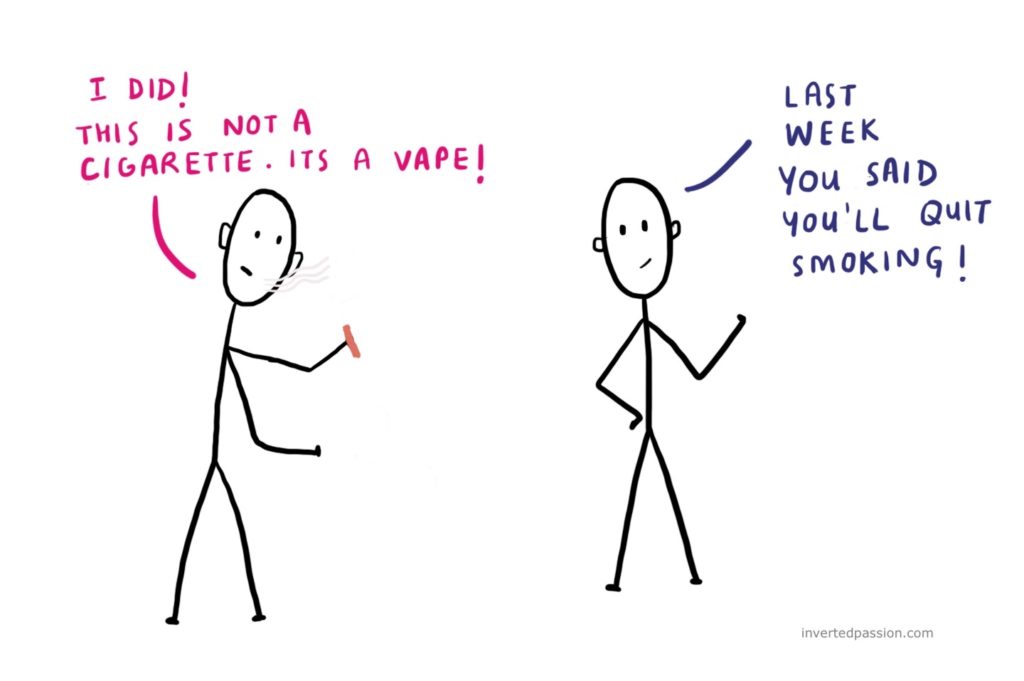Many people say they want to quit smoking or reduce their alcohol intake.

Yet days later they find themselves smoking or drinking again. How many times your friends have told you that they want to get fitter, only to later discover them ordering a large, cheesy pizza? We, humans, are notorious for saying something but doing something else. This tendency is troublesome for entrepreneurs because when people express their desire for something, it’s a mistake to take that on its face value.
(As an aside, if you’re interested in knowing how to form good habits that you can keep for long, read my essay on habit formation).
What we tell others is driven by our desire to appear as nice, visionary, and thoughtful. So, we usually end up saying all the right-sounding stuff. But when it comes to our actions, we’re driven by our more primal fears and desires. An entrepreneur needs to understand this inconsistency.
One of the biggest mistakes an entrepreneur can make is to believe a potential customer when she says she likes the pitched idea. A fantastic example of this is Spirit Airlines. It’s the most hated airline in the US but it is also the most profitable. How can that be? Clearly, for the vast majority of air travelers, no matter what they say online, the desire to save money while traveling is more important than their desire for comfort.
Customers vote with their wallets.

So, don’t ask people what they want. Most won’t tell you the truth about their actual behavior because they themselves don’t know about it until they’re ready to act. To spot strong human desires, instead of asking people, watch what they do and what sorts of products and services do they pay money for.
Remember: behavior, not words, is the real evidence of desire.
This essay is part of my book on mental models for startup founders.
Join 200k followers
Follow @paraschopra